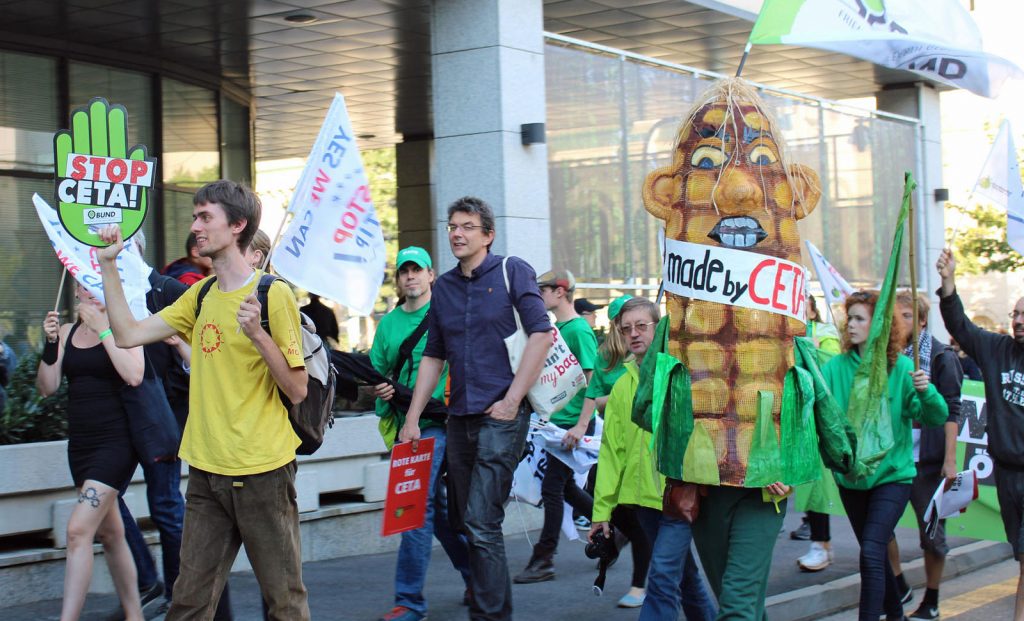Two untested varieties of genetically modified (GM) maize could find their way on to European fields with potentially negative impacts on nature, according to Friends of the Earth Europe.
The European Commission will soon initiate a vote on whether Syngenta’s Bt11 and Pioneer’s 1507 maize should be grown in the European Union, despite incomplete safety tests. If approved, these would be the first new GM crops legally authorised for cultivation in the EU in almost 20 years, at a time when biotech companies are merging to consolidate their control on the food chain.
The European Parliament vote today on their position on the GM maize proposals.
Mute Schimpf, food campaigner for Friends of the Earth Europe said: “European farming needs urgent support to make it greener, safer and better for farmers. We need to break away from even more corporate control in order to increase our sovereignty so that we can feed future generations sustainably. GM crops have no place in our food and farming and there is no reason to open the door for more to be grown.”
The European Food Safety Authority (EFSA), responsible for assessing the impacts of new GM crops, gave the green light to the two varieties despite significant gaps in data, substantial research challenging its thinking, and irrespective of recognised risks. They also disregarded significant long-term research that shows maize pollen travels substantially further than EFSA models, pointing to a significant risk of cross-contamination.
Mute Schimpf continued: “There are major questions about the safety of these GM crops, especially whether they unintentionally kill butterflies and moths. With industrial farming already wiping out nature at an alarming rate, the last thing we need is for risky GM crops to be introduced that would cause even more devastation.”
Genetically modified crops have been rejected consistently by consumers and farmers, over concerns about their safety. Since autumn 2015, 17 member states and four regions have banned the cultivation of the only GM crop so far permitted, Monsanto’s Mon810 maize. In 2015 GM crop cultivation reduced by 19% as farmers turned away from using the GM varieties – and is now cultivated on less than 1% of EU arable land.







